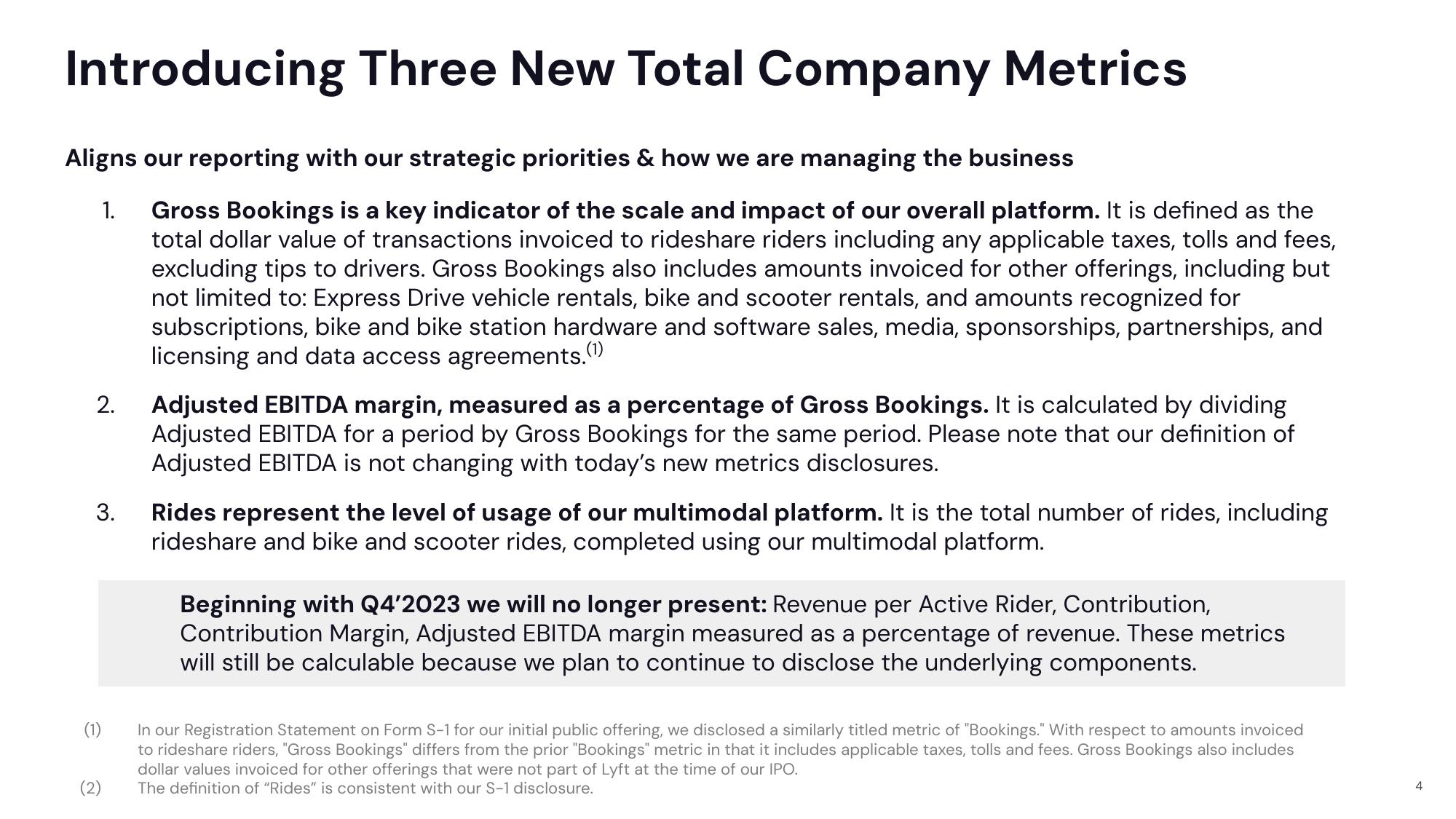Lyft Results Presentation Deck
Introducing Three New Total Company Metrics
Aligns our reporting with our strategic priorities & how we are managing the business
1. Gross Bookings is a key indicator of the scale and impact of our overall platform. It is defined as the
total dollar value of transactions invoiced to rideshare riders including any applicable taxes, tolls and fees,
excluding tips to drivers. Gross Bookings also includes amounts invoiced for other offerings, including but
not limited to: Express Drive vehicle rentals, bike and scooter rentals, and amounts recognized for
subscriptions, bike and bike station hardware and software sales, media, sponsorships, partnerships, and
licensing and data access agreements.(1)
2.
3.
(1)
(2)
Adjusted EBITDA margin, measured as a percentage of Gross Bookings. It is calculated by dividing
Adjusted EBITDA for a period by Gross Bookings for the same period. Please note that our definition of
Adjusted EBITDA is not changing with today's new metrics disclosures.
Rides represent the level of usage of our multimodal platform. It is the total number of rides, including
rideshare and bike and scooter rides, completed using our multimodal platform.
Beginning with Q4'2023 we will no longer present: Revenue per Active Rider, Contribution,
Contribution Margin, Adjusted EBITDA margin measured as a percentage of revenue. These metrics
will still be calculable because we plan to continue to disclose the underlying components.
In our Registration Statement on Form S-1 for our initial public offering, we disclosed a similarly titled metric of "Bookings." With respect to amounts invoiced
to rideshare riders, "Gross Bookings" differs from the prior "Bookings" metric in that it includes applicable taxes, tolls and fees. Gross Bookings also includes
dollar values invoiced for other offerings that were not part of Lyft at the time of our IPO.
The definition of "Rides" is consistent with our S-1 disclosure.
4View entire presentation